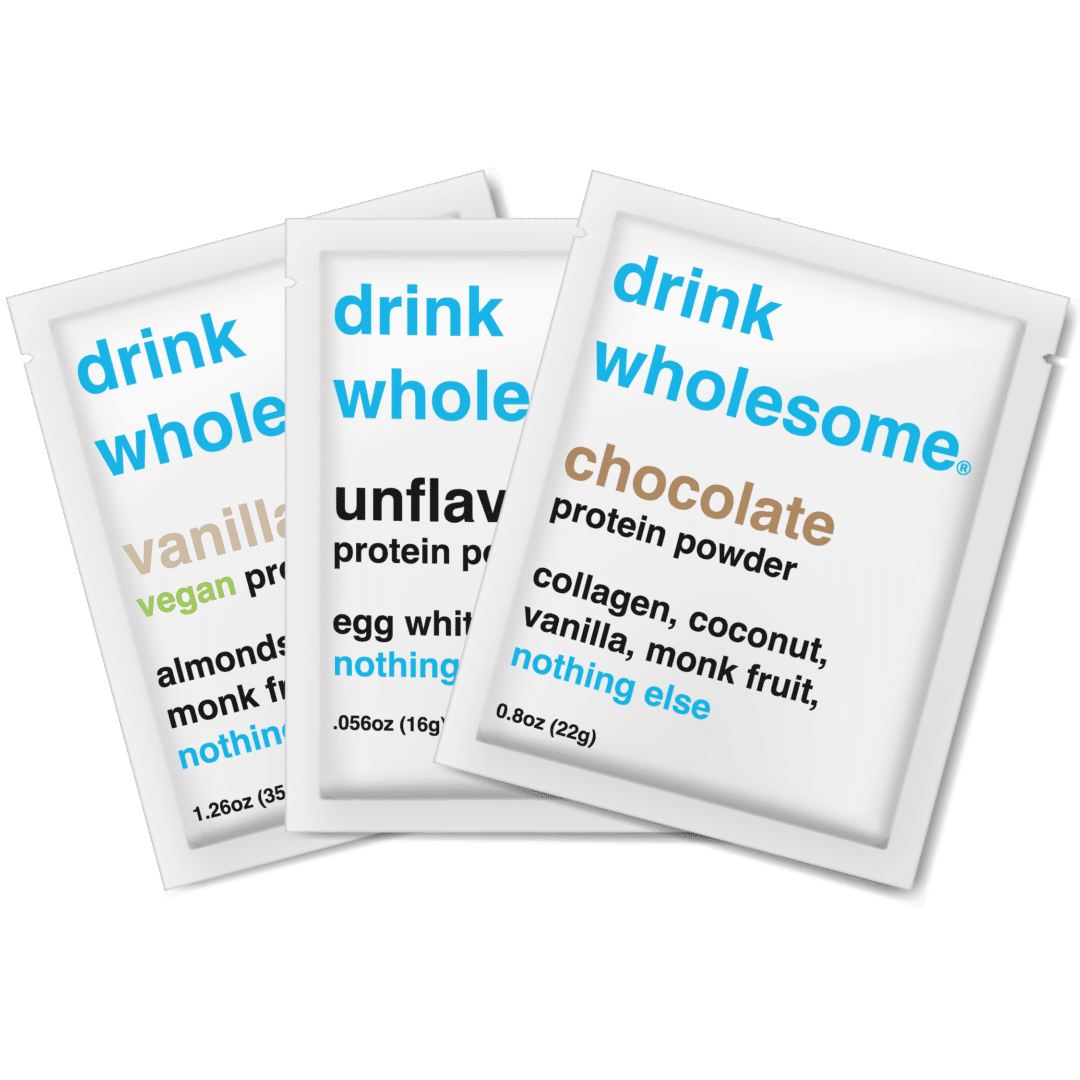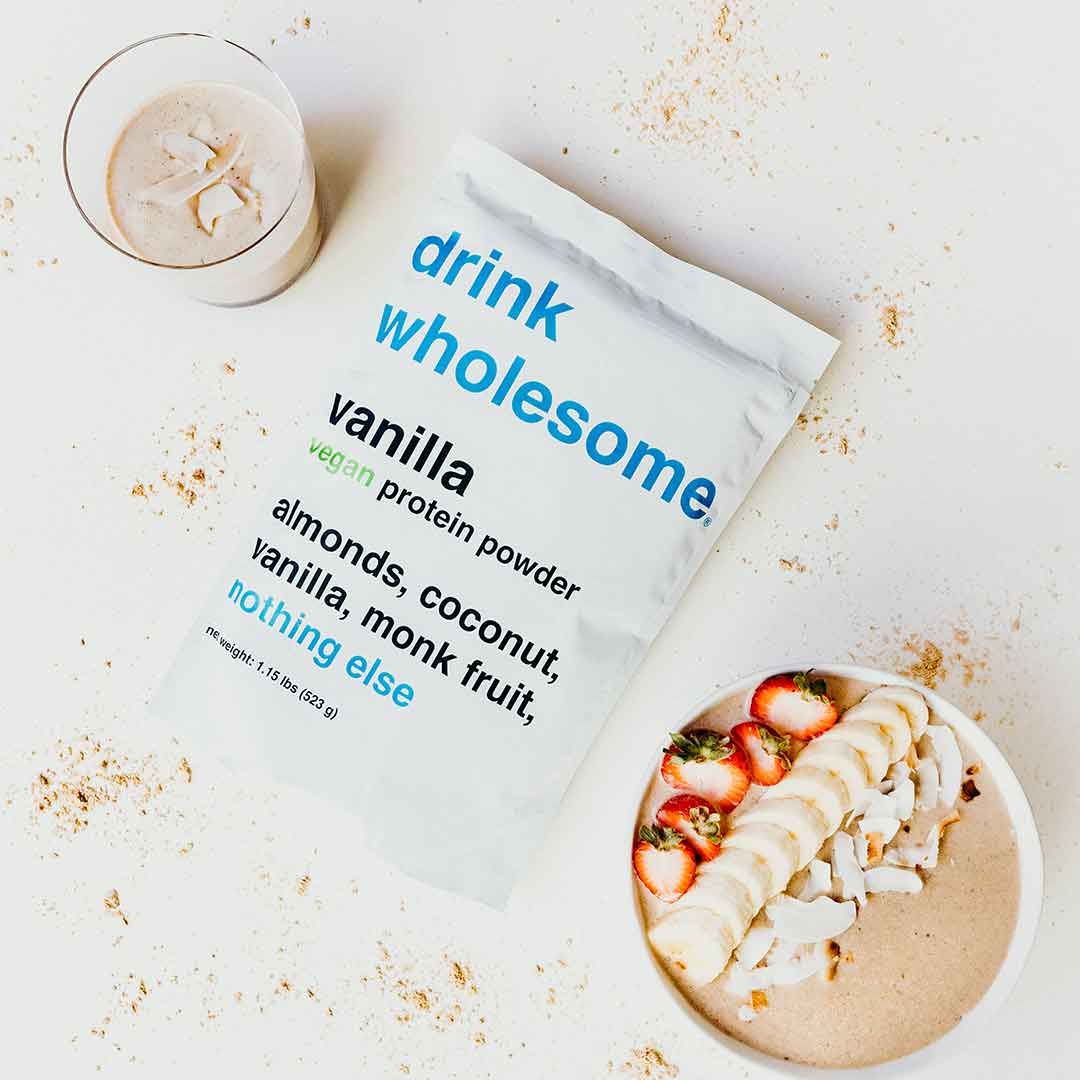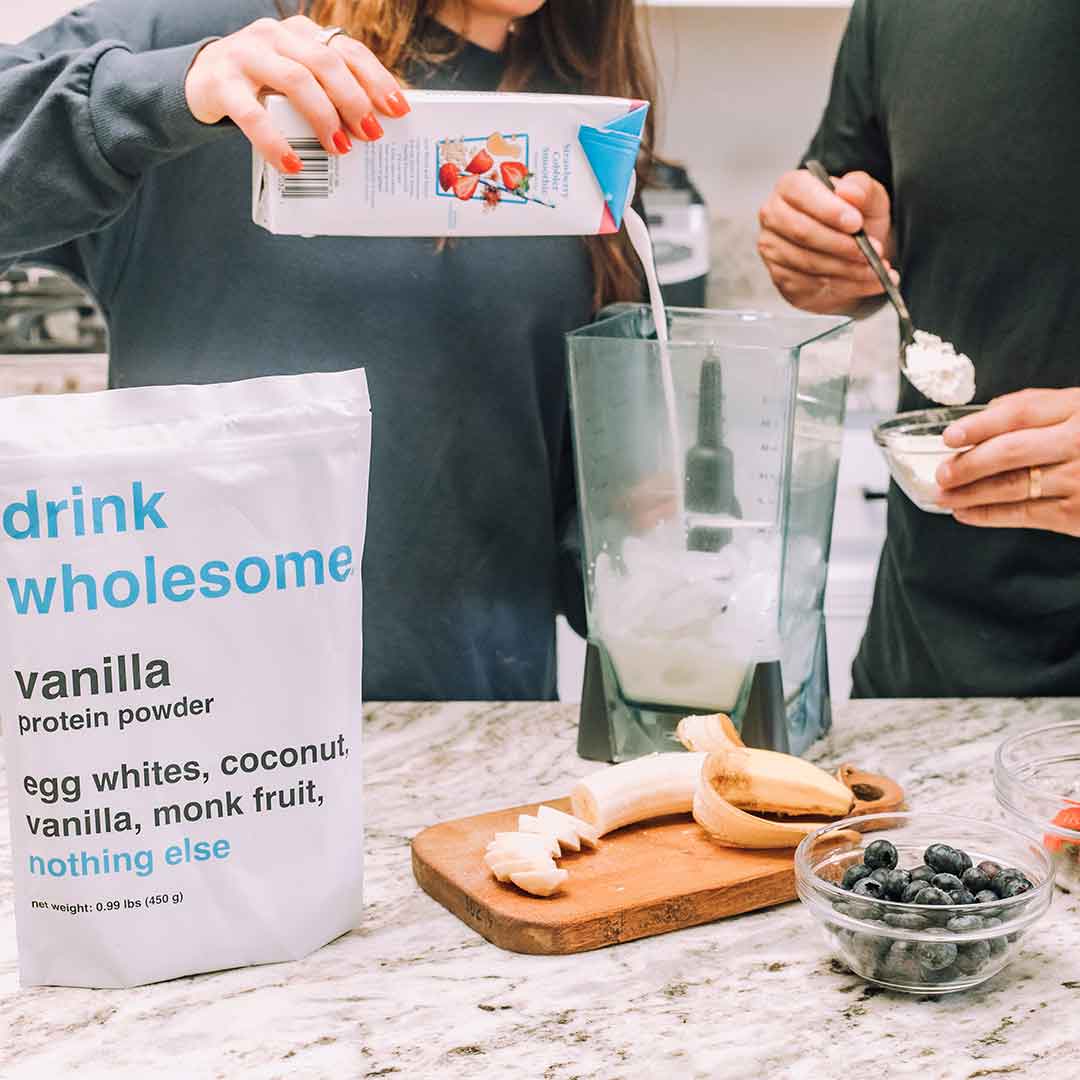Which protein powder is best for digestive health?
Unfortunately, most protein powders are not good for your digestive health. You only need to look at the ingredient list to understand why. The average protein powder is made with a cocktail of emulsifiers, thickeners, flavors, and sugar substitutes, all of which can cause painful gastrointestinal (GI) side effects and long-term gut health problems.
In case you were wondering, the type of dietary protein in your protein powder does not make much of a difference in terms of digestive health. Unless you have a specific allergy or sensitivity – people with dairy allergies and lactose intolerance should avoid whey and casein, people with soy allergies should avoid soy, etc. – any type of protein can help you safely boost your protein intake.
It is worth adding that you should prioritize whole food protein sources whenever possible. Most protein powders are made with protein concentrates and isolates, which have been chemically and/or mechanically stripped of everything but the protein, including the fiber and enzymes that help you break them down. Whole food protein sources, on the other hand, retain these natural digestive aids.
In short, picking a protein powder made with a short list of simple ingredients is the best way to boost your protein intake while supporting your digestive health.
Should I use protein powders with added probiotics and digestive enzymes?
There is little evidence that protein powders with added probiotics improve your gut health. In fact, people with gut conditions Small Intestinal Bacterial Overgrowth (SIBO) often find that added probiotic make their symptoms worse. The need for probiotics is so individualized that a one-size fits all approach is not effective. Figuring out the strain or dose of probiotics that is right for you requires testing under the guidance of a trained healthcare provider, and even that can be hard.
Protein powders with added digestive enzymes may be easier to digest for people with digestive disorders such as lactose intolerance, but their benefits are limited for healthy people. Unless you have pre-existing gut issues, you are best off avoiding products like these. A protein powder company should not have to add digestive enzymes or probiotics to its products to make it gut-friendly.












